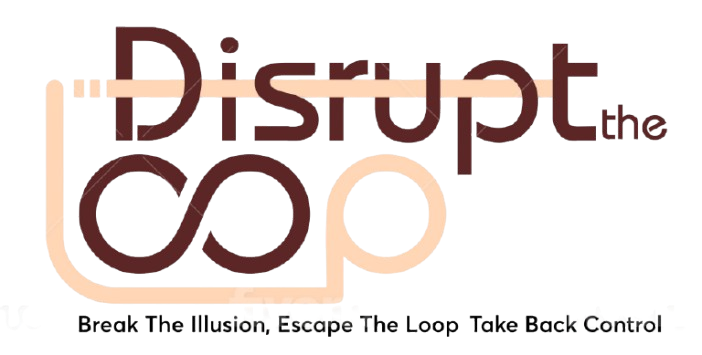In today’s hyperconnected world, our most intimate relationships have undergone a profound transformation. Once governed by emotional and social forces, human connection now increasingly resembles an economic marketplace—where value, scarcity, and desirability operate under inflationary pressures. This shift raises critical questions: Are we choosing partners based on genuine connection, or are we engaging in a high-frequency trading system of human worth?
The Commodification of Human Worth
At the heart of this transformation lies the commodification of identity—where human worth is no longer intrinsic but something to be marketed, optimized, and proven.
Consider how modern dating often begins with credential-based filtering:
- Where did you go to school?
- What do you do for a living?
- What’s your social status?
These extrinsic markers, initially used to gauge compatibility, have become primary indicators of worth. As a result, desirability follows a market-driven logic: those with high-demand attributes experience “price appreciation,” while others face depreciation over time.
Dating Apps: The Algorithmic Trading Floors of Attraction
Modern dating apps function like high-frequency trading platforms, where algorithms dictate visibility, desirability, and ultimate success. A simple swipe functions as a “buy” or “sell” decision, reducing human connection to rapid, transactional exchanges.
This algorithmic marketplace distorts relationships through a cycle I term “circular affirmations of power”:
- Visibility Begets Desirability: Those who receive engagement (likes, messages) are prioritized by the algorithm.
- Desirability Begets Visibility: The more attention a profile gets, the more the algorithm amplifies it.
- The Silent Majority Disappears: Those who fail to generate initial traction become invisible—much like quality products that fail due to poor marketing rather than poor design.
The Consequences?
- Hypergamy-fueled inflation: A small percentage of users absorb most attention, leaving the majority with diminishing chances.
- Artificial desirability bubbles: Just like stock market bubbles, certain profiles become overvalued due to artificial scarcity, leading to unrealistic expectations.
- Permanent market inefficiencies: People who might be highly compatible never even cross paths because algorithms dictate exposure.
The Depreciation of Personal Capital
Just like assets in a financial market, personal value in relationships depreciates over time through multiple mechanisms:
1. Age-Based Depreciation
In dating markets, age asymmetry favors certain demographics while devaluing others—often based on outdated evolutionary preferences.
2. Status Transitions
Life events such as divorce, career changes, or parenthood often serve as immediate “value write-downs” in the dating economy, limiting perceived desirability.
3. Health Capital
Physical and mental health fluctuations function as unpredictable depreciation events—making certain individuals more vulnerable to sudden loss of desirability.
4. Aesthetic Depreciation
Cultural standards prioritize specific physical attributes, leading many to engage in “value maintenance” strategies such as cosmetic procedures, status signaling, and curated self-presentation.
Self-Disclosure: A Deflationary Risk in Relationships
While intimacy is built on trust and transparency, in a commodified dating landscape, self-disclosure can function as a deflationary force.
Think of how corporations strategically disclose financials—revealing just enough to inspire confidence but not so much that they become vulnerable. The same logic applies to personal relationships:
- The “TMI” Effect: Oversharing too soon can lead to rapid devaluation, much like a stock that loses value after a bad earnings report.
- Strategic Non-Disclosure: Many individuals, especially those disproportionately objectified, may limit self-disclosure to maintain mystery, intrigue, and control over perception.
The Dark Side of Vulnerability
Even authentic self-expression can be weaponized against an individual. In a system that rewards control, the act of revealing too much can be interpreted as a sign of weakness rather than emotional strength.
Counteracting Inflationary Pressures in Dating
If desirability functions like an inflationary economic model, how can individuals regain control over their perceived value?
1. Strategic Withdrawal: The Scarcity Effect
- Oversaturation of attention devalues itself.
- Withdrawing from validation-seeking behaviors (excessive social media use, constant engagement) creates an interest rate hike, forcing others to reassess your value.
2. Controlled Volatility: The Power of Unpredictability
- Unpredictable availability increases desirability.
- Example: Texting unpredictably rather than instantly responding keeps perceived exclusivity high.
3. Reversing the Burden of Proof
- Those who constantly prove their worthiness become subordinate economic agents.
- By setting qualifying barriers instead (e.g., requiring effort before reciprocation), individuals reclaim leverage in attraction dynamics.
The Recognition Paradox: Need vs. Enslavement
At its core, human connection is driven by recognition—the need to be seen, validated, and understood. But is this need biological or socially constructed?
- Evolutionary Perspective: Early humans who received tribal recognition had higher survival and reproductive success.
- Social Control Perspective: Recognition is also a tool for hierarchy enforcement—where titles, awards, and social validation dictate perceived worth.
The Double Bind
- We need recognition to exist socially.
- Yet, excessive desire for recognition makes us prisoners of external validation.
To break free from this paradox, individuals must redefine recognition on their own terms—valuing internal fulfillment over external metrics.
Navigating the Economy of Desire: Key Strategies
To successfully navigate this commodified landscape, individuals must:
✅ Recognize economic distortions shaping attraction.
✅ Master scarcity dynamics to avoid desirability inflation.
✅ Use controlled emotional volatility to maintain perceived high value.
✅ Limit excessive self-disclosure to prevent rapid value depreciation.
Conclusion: Are We Participants by Choice or Necessity?
Relationships are no longer purely organic social connections—they increasingly function as markets, trading floors, and speculative exchanges.
The ultimate question remains:
➡️ Are we actively choosing to engage in this economy of desire, or is the system so entrenched that opting out is no longer an option?
As we continue navigating the hyper-marketized landscape of modern relationships, we must balance strategic awareness with genuine emotional connection—preserving the authentic core that makes human relationships truly valuable.
Joshua Garfunkel
Joshua Garfunkel is a researcher and theorist specializing in the intersection of economic systems and human relationships. His work examines how market logic has transformed intimate connections in the digital age.

